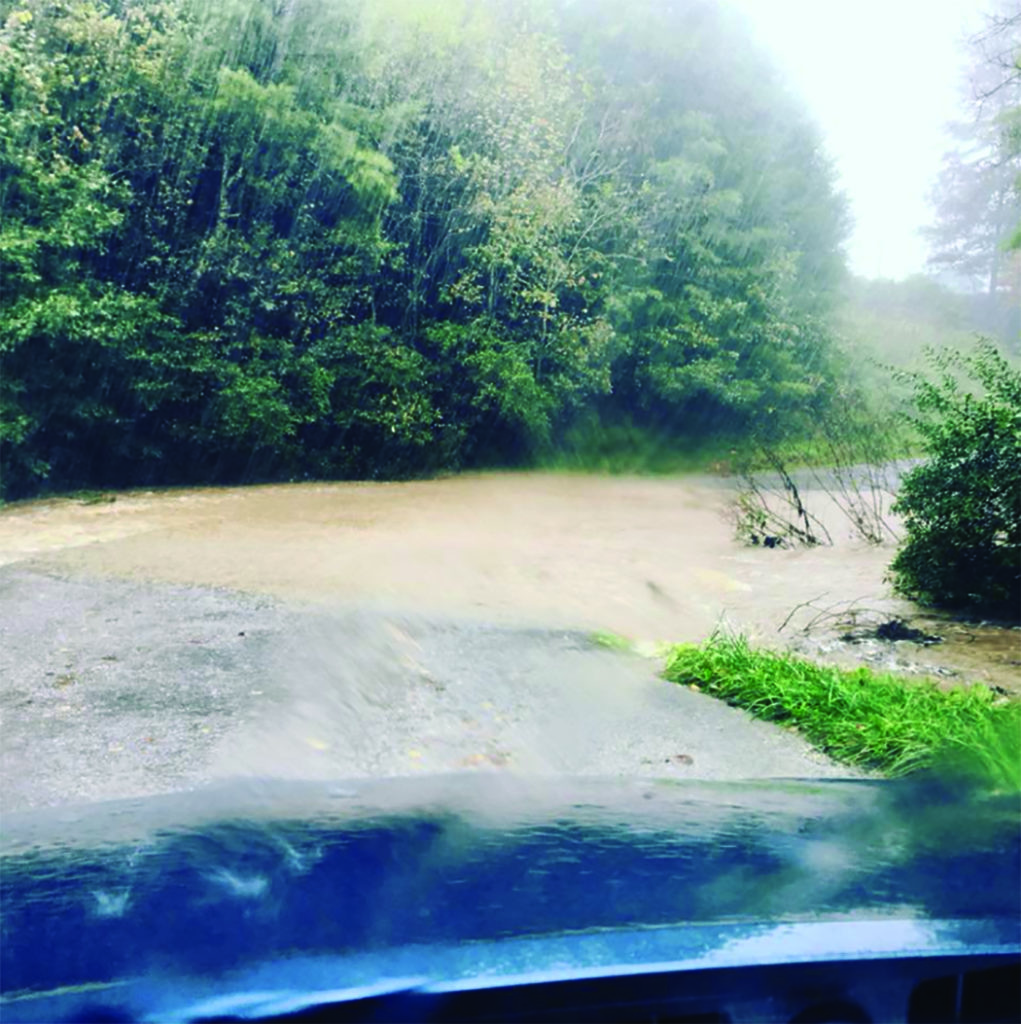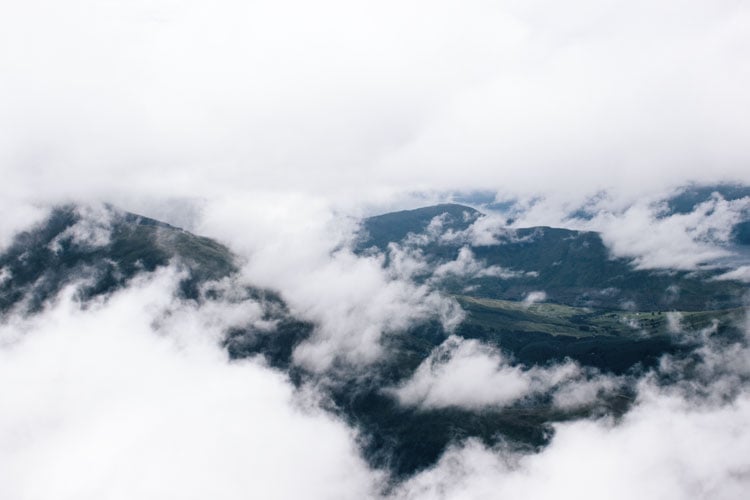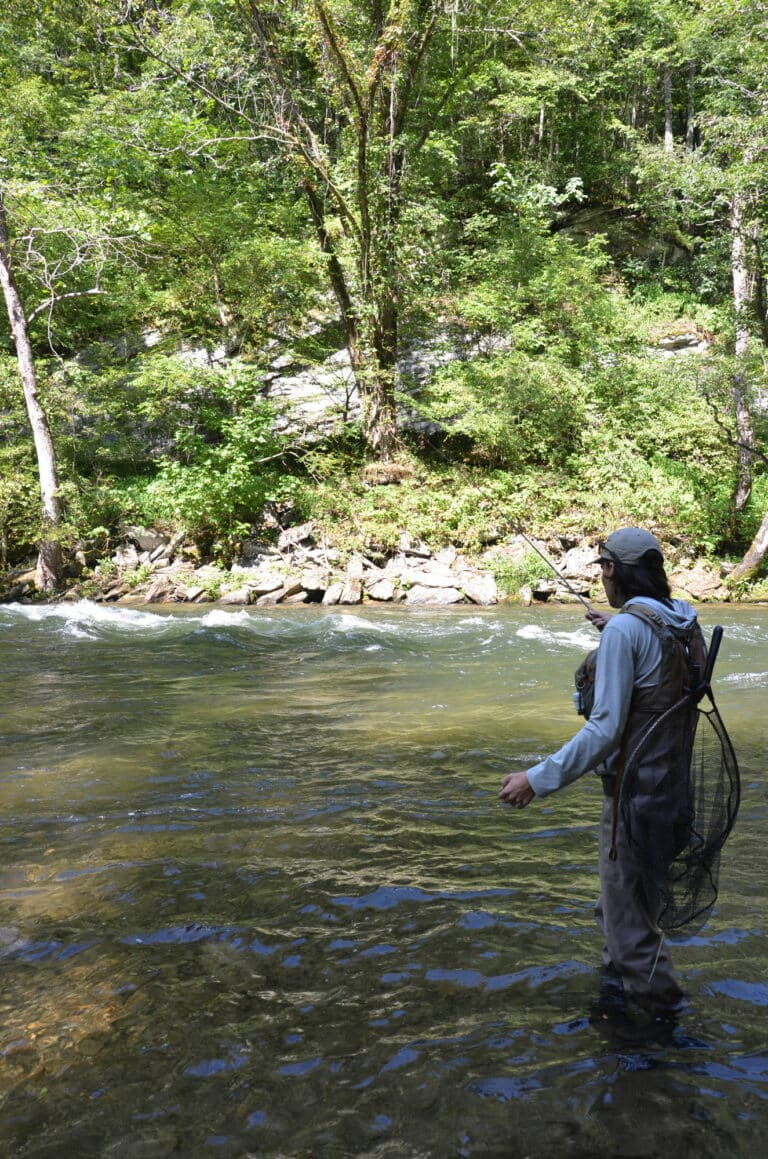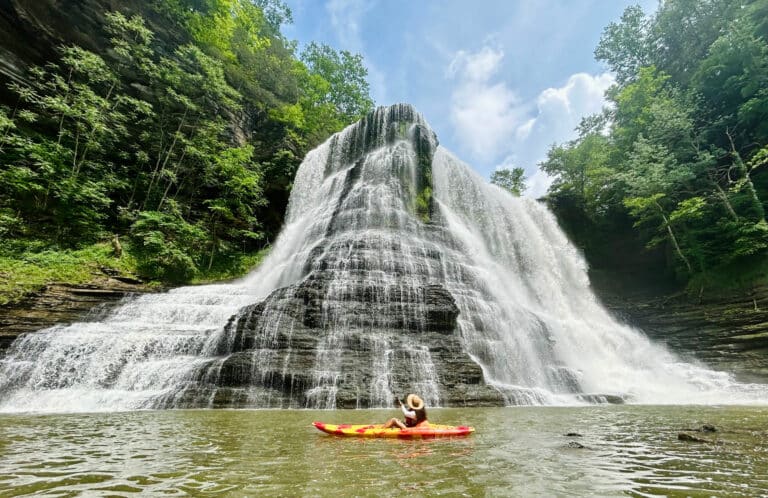Let’s stop talking about climate change in the future tense. Climate change is happening here and now, right in our Blue Ridge backyard.
The floods caught everyone by surprise, including me.
I left Blacksburg early after my wife called to warn about rising waters. The river hadn’t flooded onto the road yet, but it was getting close. A passing driver flashed his lights—never a good sign. As I topped the next hill, I saw a small river running across the road.
When people think about the effects of climate change, they often envision melting icebergs or rising sea levels along the coast line. I live in the mountains, where we’re not downstream from anyone. And yet Hurricane Michael flooded dozens of roads in Floyd County, destroyed driveways, carved up dirt roads and brought transportation to a dead halt.

Scientists tell us that extreme weather events like this will only become more common as the climate continues to change. Climate change is no longer a future consideration. It’s happening now, and its effects are being felt everywhere.
Massive storms and flooding are creating refugee crises that directly affect international geopolitics. Military officials have identified climate change as a threat to national security, not just from the direct impacts of weather but also from the chaos and political instability it creates.
Hurricanes are striking the South in greater numbers and intensity. Algal blooms created a toxic “red tide” that plagued Florida through the fall. Virginia’s Tangier Island, which gave the world soft shell crab, is disappearing beneath the rising Chesapeake Bay.
Floyd County, where I live, was a destination for the back-to-the-land movement of the ’60s and ’70s. People moved there to seek personal freedom and lay the groundwork for the alternative culture for which Floyd is known today. Some deliberately moved to Floyd—and to other communities in the Blue Ridge and Appalachia—to retreat from an expected environmental and societal collapse.
But there is no escape—not from climate change nor from the geopolitical chaos that it brings. Its effects can be seen throughout the region—flooding in the mountains, hurricane damage and red algal tides on the coast, and wildfire everywhere.
“You can’t get away, and yet you can’t solve it by yourself either,” said Jennifer Marlon, a research scientist at the Yale School of Forestry and Environmental Studies whose work includes studying climate change. “We’re seeing more flooding. We’re seeing more intense precipitation. When we do get rainfall, we’re getting more of it and in a shorter time period. But that’s really only happening in eastern U.S. and the Midwest and the north. The opposite is happening in Texas and the Southwest; it’s becoming hotter and drier there.”
As global temperatures have warmed and Earth’s polar regions have become warmer, the changing temperature gradient between the poles and equator have affected the jet stream, which has resulted in more erratic weather around the world.
The Fourth National Climate Assessment, a report compiled from 13 federal agencies and released earlier this year, said that the South and the Midwest are the regions likely to suffer the largest losses from climate change, which threatens both urban and rural areas.
In addition to more extreme weather events, the South has become increasingly urbanized. Cities create a heat island effect, which compounds the effects of warming temperatures and more frequent heat waves.
Auto- and industrial-generated air pollution combines with high humidity and temperatures to create major air quality problems.
And communities at the urban-wildland interface also are at risk from wildfires, which have become more severe as a result of drought and decades of fire suppression. Add in the growing number of high-density residential structures, and we can expect more events like the 2016 Great Smoky Mountains wildfires, which killed 14 people, injured 134, destroyed more than 2,000 buildings in Gatlinburg and Pigeon Forge, and burned more than 16,000 acres.
Construction of interstate gas pipelines along steep mountain slopes has resulted in widespread erosion and runoff during heavy rainstorms.
Rural communities also face steep challenges from climate change, especially in the agricultural and forest products industries. Those economic blows could compound the demographic and poverty challenges that already plague much of the rural South.
And while we already see the growing effects of climate change happening now, the Fourth National Climate Assessment reports that it’s only going to get worse: “While some climate change impacts, such as sea level rise and extreme downpours, are being acutely felt now, others, like increasing exposure to dangerously high temperatures—often accompanied by high humidity—and new local diseases, are expected to become more significant in the coming decades.”
As weather grows more chaotic, elected officials are slowly coming around. Republicans representing southern states see the effects on their constituents, and Democrats are increasingly elevating climate change as a priority.
Freshman U.S. Rep. Alexandria Ocasio-Cortez of New York and progressive Democrats are rallying for the Green New Deal, a policy package that aims to shift all electricity generation to renewable sources, provide job training, and support those transitioning from coal and other fossil fuels. The idea already has proven popular enough to spawn a state-level spinoff in Virginia.
The costs of wind and solar projects have dramatically fallen in recent years and are economically competitive with fossil fuels. When building new facilities, large tech companies like Amazon and Google are requiring that most or all of their electricity come from renewable sources. These developments in the private sector are making it possible for some progressive state governments to pursue a larger shift to clean energy.
All of this is reason for hope, but it’s still just a small step toward the global action that’s needed. Marlon said that we can take individual action, too: by shifting our eating habits, more closely considering what we’re buying, engaging with community and elected leaders on the issue.
In the days just before the winter solstice, western Virginia again saw heavy rain, compounded by a foot-and-a-half of melting snow. The event was not nearly as chaotic as Hurricane Michael, but roads again flooded in places I’d seen closed a couple of months before. This is going to be a regular thing, I reckon.
I’d call it the new normal, but there’s no normal anymore.








